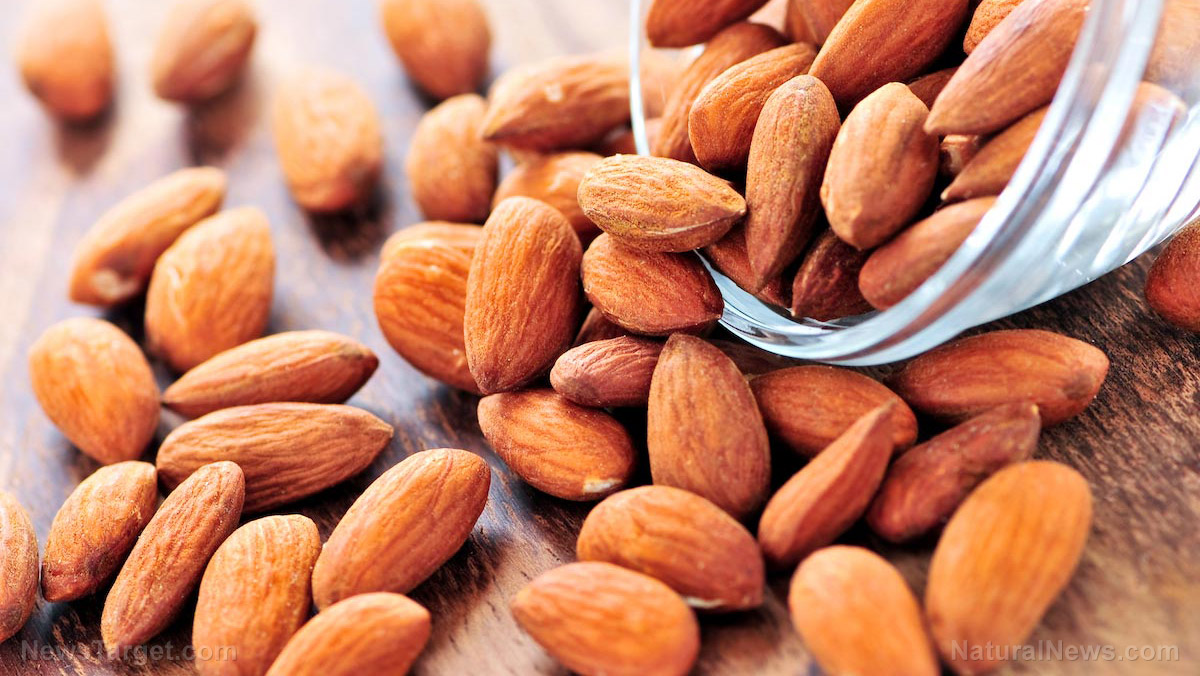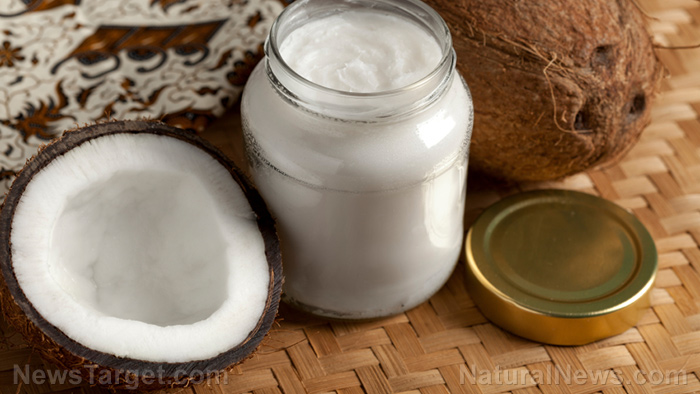Eating almonds found to accelerate the body’s mechanism for eliminating high cholesterol
09/03/2017 / By Rhonda Johansson

Balancing cholesterol levels may be as easy as eating a third of a cup of almonds each day. A new study published in Journal of Nutrition confirmed the potent effect the nut had on body cholesterol levels. It was found the almonds worked in two ways: the first is enhancing levels of high-density lipoprotein (HDL) cholesterol — otherwise known as “good” cholesterol — and improving the mechanism in which the body removes low-density lipoprotein (LDL) cholesterol, which has been proven to increase the risk of cardiovascular disorders.
Researchers from the Penn State compared HDL levels among participants who ate 43 grams (that’s roughly 1/3 cup) of almonds with those who ate a banana muffin instead. Those on the almond diet had improved HDL levels and cholesterol functionality. Authors say that this new study builds on existing research that shows the cholesterol-lowering effects of almonds.
Penny Kris-Etherton, a professor of nutrition at the school and one of the authors of the study, said on Science Daily, “there’s a lot of research out there that shows a diet that includes almonds lowers low-density lipoprotein, or LDL cholesterol, which is a major risk factor for heart disease. But not as much was known about how almonds affect HDL cholesterol, which is considered good cholesterol and helps lower your risk of heart disease.”
One of the more intriguing results of the study is that almonds somehow improved HDL function. This meant that compounds in almonds helped the HDL to gather cholesterol from cells and tissues and deposit them in the liver to be broken down.
For the purposes of the study, 48 men and women were placed in a controlled-feeding review. All of the participants were reported to have elevated LDL levels. Over the course of two six-week diet periods, participants had an identical diet except for the daily snack. For one six-week period, participants were given 43 grams of almonds a day. During the control period, they were given a banana muffin instead.
Each six-week diet period was concluded with a cholesterol measurement. Researchers compared the end number with the participant’s baseline taken at the beginning of the study.
They found that the almond diet improved HDL function by 6.4 percent, and increased the size of HDL particles by 19 percent.
“We were able to show that there were more larger [sic] particles in response to consuming the almonds compared to not consuming almonds,” Kris-Etherton noted. “That would translate to the smaller particles doing what they’re suppose to be doing. They’re going to tissues and pulling out cholesterol, getting bigger, and taking that cholesterol to the liver for removal from the body.” (Related: Almonds can save your heart and reduce obesity.)
This, in turn, significantly reduced the overall risk of cardiovascular disease.
The team did note that almonds are not enough to eliminate the potential for heart illness, but can be a healthy and smart snack. Almonds are also a good source of other nutrients and vitamins such as vitamin E and soluble fiber. These have an added benefit of maintaining a healthy heart.
Heart disease in America
- There are an estimated 84 million people in America who are diagnosed with some form of cardiovascular disease.
- Heart conditions account for around 2,200 deaths a day. This translates to an average of a death every 40 seconds.
- Medical professionals believe that one in every three deaths in our country result from a cardiovascular disease.
- Supposedly, the direct and indirect costs of cardiovascular disease is about $315 billion. This number is estimated to be increasing every year.
- About one third of all cardiovascular disease deaths occur before the age of 75.
Sources include:
Tagged Under: almonds, cardiovascular conditions, cholesterol, heart attack, heart disease, heart health, stroke




















